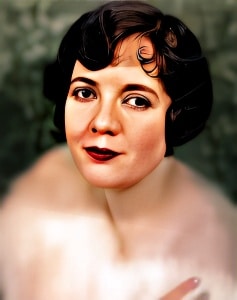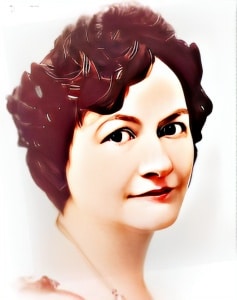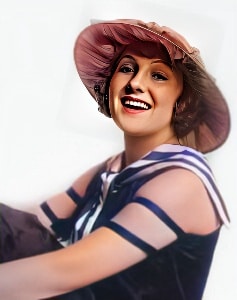 Miriam Cooper (1891-1976) was an American actress who made significant contributions to the early years of cinema during the silent film era.
Miriam Cooper (1891-1976) was an American actress who made significant contributions to the early years of cinema during the silent film era.
She is best known for her work in pioneering films directed by D.W. Griffith and her versatile acting abilities.
Miriam Cooper was born on November 7, 1891, in Baltimore, Maryland. She began her acting career in theater before transitioning to the emerging medium of silent films. Cooper’s big break came when she was cast by director D.W. Griffith in his groundbreaking film “ The Birth of a Nation” (1915). In the film, she played the role of Margaret Cameron, a character central to the film’s narrative. “ The Birth of a Nation,” while technically innovative, was also highly controversial due to its racist content.
Cooper’s performance in “ The Birth of a Nation” was critically acclaimed, and it marked the beginning of her successful career in silent films. She demonstrated her ability to portray a wide range of emotions, from innocence to suffering, and her expressive acting style resonated with audiences.
Following her success in “ The Birth of a Nation,” Cooper continued to collaborate with Griffith in films like “ Intolerance” (1916), another ambitious project by the director. In “ Intolerance,” she played several roles across different historical eras, showcasing her versatility as an actress.
One of her most notable performances came in the film “The Honor System” (1917), directed by Raoul Walsh. In this film, she played a character who, after a series of unfortunate events, finds herself in a desperate situation. Her portrayal of the character’s resilience and moral fortitude received critical acclaim.
Cooper worked alongside other prominent actors of the time, including Douglas Fairbanks and Rudolph Valentino. She displayed her adaptability by performing in various genres, from drama to adventure and romance.
Miriam Cooper’s transition to sound films was not as successful as her work in the silent era, and she gradually retired from acting in the late 1920s. She made a brief return to the screen in the 1950s, appearing in a few television roles.
In addition to her acting career, Cooper was married to Raoul Walsh, a notable film director. Their marriage lasted from 1911 until their divorce in 1926. Cooper’s contributions to the silent film era are celebrated for her ability to convey complex emotions and her significant presence in some of the era’s most iconic films.
Miriam Cooper’s legacy in the history of cinema remains a testament to her talent and the impact she had on the silent film era. Her performances, particularly in D.W. Griffith’s films, continue to be appreciated and studied as an integral part of early American cinema.
Loading live eBay listings...




